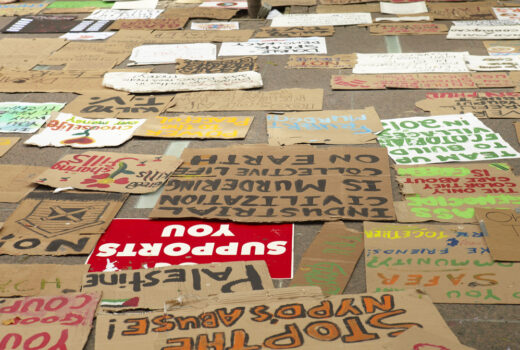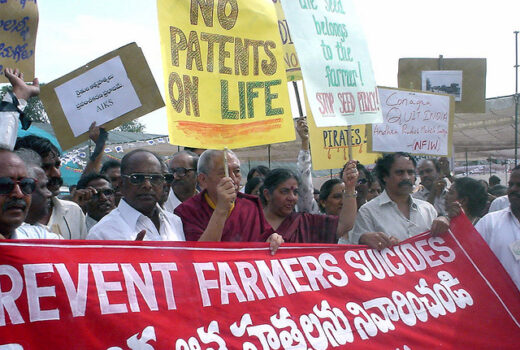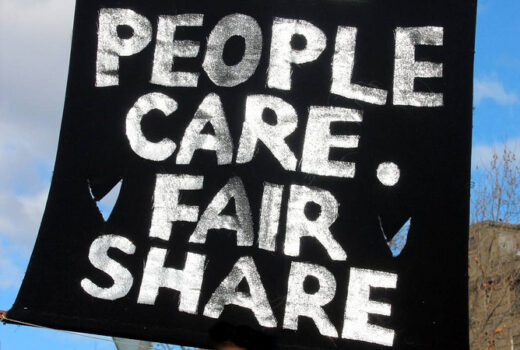Topic: Environment
An enquiry into the meaning of sharing food
Article / 9th August 2013If we are concerned about stopping the enduring crime of starvation amidst plenty, we cannot restrict our actions to the level of our own country or community. We should rather think about sharing food in global terms and, above all, in relation to the politics of ending hunger.
A new era of global protest
News / 1st July 2013As a new era of mass public protest grows in response to social, economic and political injustice across the world, STWR's July newsletter highlights some of our recent publications that advocate for global economic sharing to become a common platform of the emerging people's voice.
Global Sharing Day 2013: let’s talk about food
Article / 2nd June 2013The idea of sharing food has taken root in recent years as a response to our broken food systems, but does it make sense to talk about food sharing on a global basis? Perhaps it does, as long as we advocate a true form of economic sharing that addresses the power structures and politics underlying our unjust globalised food economy.
Share The World’s Resources interviewed by WereldDelen Magazine
Article / 13th May 2013The social, environmental and economic crises that continue to reap havoc across the globe provide a critical opportunity for ordinary people to demand economic reform and political transformation, say STWR in an interview with John Habets & Henk Gloudemans.
The people’s responsibility to stand in solidarity with the poor
News / 26th March 2013Read about STWR's work in 2012 and some of our planned participation at events over the coming year in the newsletter for March, which includes a run-down of recent articles and posts as well as an overview of our upcoming research priorities and a website redesign.
On seed freedom and sharing
Article / 12th February 2013The seed freedom movement is an inspiring example of how the principle of sharing is central to resolving the crisis in agriculture, and highlights the urgency of resisting the powerful agribusinesses that seek to eliminate biodiversity and criminalise the saving and sharing of seed.
Values and the sharing economy
Article / 9th February 2013In order to stimulate further public engagement and activism on global issues, it is important for those promoting the sharing economy to place far greater emphasis on the environmental and social benefits of sharing rather than any purely personal benefits, such as financial gain.
Cultivating intrinsic values through sharing
Blog / 29th January 2013According to a growing body of psychological research, promoting intrinsic values can lead to better outcomes for the environment and society as a whole. Can a call for greater economic sharing help promote these values and unite progressives in a common cause that spans diverse cultures and multiple issues?
Earth rights and sharing the world resources
Article / 18th January 2013Land value taxation embodies the principle that natural resources are the creations of nature and should therefore belong to society as a whole, not individuals – and as STWR acknowledges, the ramifications of this conceptual shift for a more just and sustainable world are potentially immense.
How to mobilise $2.8tr to finance the global sharing economy
Article / 14th January 2013There are many policies that governments could implement to raise the finances needed to reverse austerity measures, tackle climate change and prevent needless poverty-related deaths. But we cannot rely on governments to change the current world direction - the only hope is a huge groundswell of popular support in favour of global sharing.





